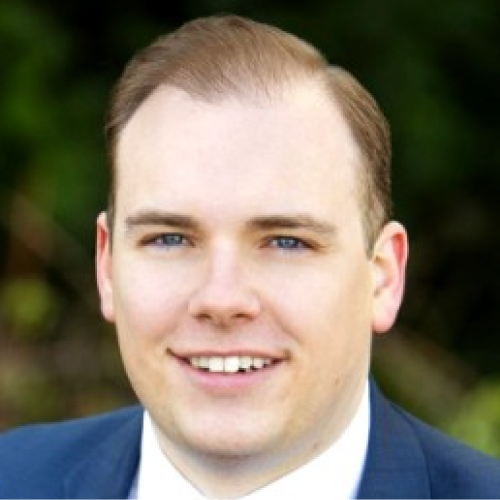Episode 325 – June 3, 2022
Listen On: Apple Podcasts | Spotify | Google Podcasts | YouTube
Member of the City of Vancouver Renters’ Advisory Committee, Kit Sauder, sits down with Adam and Matt to detail the Broadway Plan, why opponents of the plan have it wrong, and how a defeat on this front is not just another nail in the coffin of a city in serious jeopardy of losing its dynamism. It isn’t just the kids who are leaving Vancouver! How have political lines shifted in the city along generational lines? How will the Broadway Plan help save the city from itself?
Listen to Episode
Guest Information
Episode Summary
Who is Kit Sauder?
I joke that I’m from the poor Sauders. My family came to BC from Alberta and I grew up in White Rock. I went to UBC Okanagan where I studied political science and philosophy. I ended up in network security sales after graduation.
While working there, I got a call from a buddy ahead of the 2013 provincial election to take over an area. I was able to convince enough people to get the votes and we won the election. I ended up getting recommended to serve with the provincial government and advise the Minister of Education.
I continued working in government in education, energy, Indigenous relations, transportation and emergency response over the next five years. After our party lost the next election, I returned to Vancouver, married my college sweetheart and we had our first child.
I appreciated the opportunity to serve the province but also being able to step away from it after a term.
Thoughts on criticism of the former BC Liberals government:
There’s a lot of complaints about former governments: How could they not have seen this coming? Because now we’re governing under so many different crises at the same time: from drugs and housing affordability to finding childcare. There’s also ecological collapse, reconciliation with First Nations and many other issues. These issues are complicated to unknot. We have to give each other some more grace for the work that’s getting done.
How do the demographics of millennials and Boomers impact decisions in society?
I’ve been looking at demographic and census data for the last 15 years. The generational social economy of society for almost all Western democracies, particularly in Canada and the US, has been dominated by Boomers since 1978. Gen X was a smaller generation and millennials are the children of Boomers.
Boomers worked hard and have moved through a lot of crises. But the broad trend of their generation has been growing wealth and opportunity. Gen X, because they’re smaller, were given false choices. There were fewer people to invest in them and give them opportunities.
Boomers are healthier, longer lived and wealthier than any generation in the history of the world. So it’s taking longer for us to reach a critical realignment because their generation is so large and powerful. But as of 2021, millennials became the plurality and majority vote in North America. For the first time in four decades, we have a completely different group deciding the future of our society. That drives conflict.
What is the Broadway Plan?
The Broadway Plan is a Local Area Plan.
Local Area Plans govern the zoning, permitting and management of development around Vancouver and are required under the local government act by the province of BC.
The province has control over how cities do things in Canada. We don’t have the same system as in the US.
What is driving the decision making around this plan is the rapid transit subway coming in under Broadway. The question is whether the wealthy single-family homeowners in that area get to have that subway for free. The argument on the city level is the best way for us to pay for the subway line is with density; adding substantial density at the station sites, though I don’t think it goes far enough. Density is then moderated as you move out from the station.
We’re talking about 8.9 square kilometres of the city – about 9% of the city’s footprint. It covers the mixed-use and co-op spaces around False Creek, VGH and City Hall. One in four jobs in Metro Vancouver, one in six jobs in BC and one in twelve jobs west of Ontario are in this area. Should we build here? Absolutely!
For people building their career and a future for their families, living in this area means their jobs are right there. I think it’s a mistake to have nurses driving in from Chilliwack or Hope to provide care, while exhausted and burned out. We’re building inequities and threats into our system.
For some people, if they can’t make it in Vancouver, they have to move provinces, if not move countries. They need better jobs, housing and childcare opportunities in an urban environment. If we don’t tackle this problem, the city will hollow out.
What does the density of the Broadway Plan look like?
Folks with very good intentions want to bring in lots of co-ops, social housing and strict requirements on square footage and unit format. I come from a different philosophy. I believe we don’t have the capacity for the state to pick up the slack on this. I don’t think it’s wise for us to rely on the province to provide the housing we need – they’ve never been able to do it before. We don’t have the slack in our tax base or economy.
Should taxpayers bear the burden for housing folks? I don’t think so. The Broadway Plan doesn’t actually upzone anything. We’re still doing spot rezoning and have the slowest rezoning process in the Americas. The City of Vancouver has over 800 distinct zones; the average North American city has just over 100. It doesn’t make sense that we have this complicated system.
The new subway line has about seven stations and almost all are in the Broadway Plan area. At each station, an applicant could develop a building up to 40 storeys and you may have organizations like BC Housing supporting some of those units. I’ve asked the Mayor and council why we’re not talking about 80 storeys. But the compromise they’ve reached with the single-family homeowners is to make the towers shorter and shorter.
I reject the premise that we can plan our way out of our housing crisis. Only the largest developers can afford to build in Vancouver – and that’s without political certainty that their projects will get built. That’s bad for the economy and for tackling affordability.
We need to get away from nitpicking every little window, gable or trellis. That’s not of interest to a city that is growing and thriving. The only people who care about that are those in their homes, watching their neighbours from the window.
Keep your finger on the pulse of Vancouver’s real estate market with our Live Wire email newsletter.
Why is Vancouver getting housing and development so wrong?
This all comes back to the demographic realities. Vancouver is older, whiter, richer and better educated than almost all of the surrounding suburbs.
Burnaby is generating revenue with height and density, generally around office parks. Though they did stumble in building some condos without the right protections for renters. In Surrey, they have a single streamlined approval process. That saves 4-7 months minimum for every major project.
Vancouver is very similar to Minneapolis. We’re the only two cities with an elected park board. Minneapolis has recently integrated a lot of density and improved affordability with their “missing middle” campaign. Unfortunately, our market in Vancouver is so far past the missing middle. We have to move our expectations.
In Vancouver, we have folks building affordable housing units. But there are people competing for those housing units who are making $100,000+ per year. Those people should have the wealth to buy or rent but they can’t.
We are 86,400 units behind in Vancouver – and that’s just for underhoused people. We have 52,000 people who will need houses in the next five years. So just to keep pace, we need over 14,000 new units every year in Vancouver. We’re not even at half that with the most investment from provincial and federal governments in the last 35 years.
Who should decide what gets built in Vancouver?
That’s another debate we’re having. Do we need to have more consultations or less?
California has the most consultations and reforms in all of North America. You can get anything on a state ballot in California. And people are voting on issues every 14 or so months. But most people are busy and say, “That question sounds hard and I don’t like it.” So they vote no.
If we want a society that can move, we need to tackle problems quicker. We can’t afford to have 4.5 years of consultation on a Local Area Plan. We elect people to lead us. That government needs to do its job and get out of the way.
I’m not saying the government shouldn’t listen to people. But they need to have the courage to get elected, go through a hearing process and then make a wise decision. They need to have the courage to lose their jobs.
Elected officials should not be doing this for life. They should risk getting fired because they made the right choice, not the choice that was in their political interest.
What’s at risk if we don’t get housing right in Vancouver?
The risk if we don’t tackle the housing crisis is the inevitable collapse of the city of Vancouver. Of course, Vancouver won’t cease to exist. But the city as we know it will change.
We have people who are spending more time driving to get their jobs done than actually doing their jobs. The Broadway area is already one of the densest areas in the province but it should be much denser.
The number one factor impacting people is cost of living. Life is a lot easier if you can walk out of your door and easily reach your job, your doctor’s office, your choice of grocery store, etc.
For the last 30 years, we haven’t changed our plan. We need to decide who is going to pay for the benefits to live here and who gets to live here.
How does the Broadway Plan help renters and families?
The commitments in the Broadway Plan have robust renter protections. Two thirds of all development will be purpose built, market, affordable, below market and non-market rental space. And the Broadway Plan extends regulations to increase the number of two and three bedroom units required. That will allow families to live in this area.
Not having this kind of space for families undermines the future of our city. 25% of Vancouverites are seniors and opponents to the Broadway Plan believe we should frame our land use policies to focus on seniors. And while I acknowledge the hard work of that generation to build this city, it is medically impossible for the largest demography of a complex society to be retirees.
For babies and children to be the most shrinking population in Vancouver means we are a city in decline. We are not planning for the future. We are making the past comfortable. If you prioritize the interest and needs of families, you go a long way in providing for people with disabilities and senior citizens. You’re providing a safe space for everyone.
We need to get to a place where someone can show up in Vancouver at 28 years old and not wait 10 or 15 years to have a child.
Do you believe the Broadway Plan will go through? When will we get a decision on the Broadway Plan?
We have a lot of folks who want to speak on this issue. We’re looking at only 6-7 people speaking each hour and over 200 people trying to speak.
I encourage the council to hear this, “You got elected to do a job. Unfortunately, you had to govern our city through a plague, providing support for huge crises like floods and small business relief. You haven’t had an easy go and you deserve time to make this call. But you’ve already extended the timeline. You need to make a choice and run the upcoming election on the decision you’ve made.”
What do you think will happen in the upcoming Vancouver mayoral election? What do you hope happens?
I presume that due to the large number of parties and council candidates running in the upcoming Vancouver election, we’ll see 9/10 councillors return. So I predict very little change in our council and possibly in our mayoral seat. But I hope we do see some change.
We have a deadlock between the millennials and the Boomers. People aren’t confused – they’re competing. My ask is that everyone under 45 gets out and votes. We need to have elected officials who represent our interests.
We have to get to a place where we can respect and steward the legacy of those who came before us while also encouraging investment into the growth of our communities for younger generations.
There have been a lot of concerns about displacement and speculation driving up prices with the Broadway Plan. What are your thoughts on that?
People are right not to trust their governments. That’s a rational position to take. You should have a healthy skepticism of their decision making because politicians do have other interests.
With the Broadway Plan, maybe it’s time to do something big all at once, instead of just tinkering around the edges like we always have. Building 4-6 storey purpose-built rentals is opposed by less than 15% of Vancouverites.
But our society is made up of many income groups. We’re driving towards a society that is made up of only mansions for millions and government housing for a permanent underclass. And that’s not okay.
Keep your finger on the pulse of Vancouver’s real estate market with our Live Wire email newsletter.
Episode Host

Adam Scalena
Adam is a full-service realtor, specializing in Vancouver’s best areas. His systematic approach to real estate and dedication to his clients has consistently placed him within the top 10% of realtors operating within Greater Vancouver.

Matt Scalena
Matt is real estate obsessed and considers himself a lifelong student of the Vancouver real estate market. As a co-manager of the Scalena Real Estate team, Matt prides himself on expertly advising buyers and sellers on all aspects of the fast-paced, dynamic Vancouver real estate market. He is present at every stage of the process, from that first phone call or email right through to when keys are exchanged between sellers and buyers.








